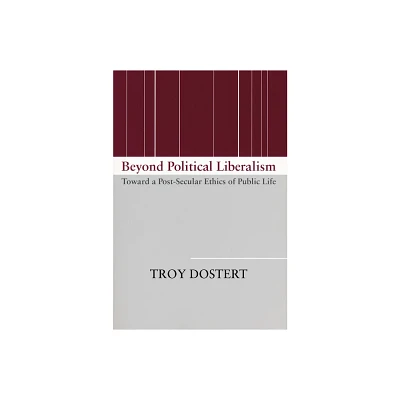Home
Beyond Liberalism
Loading Inventory...
Barnes and Noble
Beyond Liberalism
Current price: $140.00


Barnes and Noble
Beyond Liberalism
Current price: $140.00
Loading Inventory...
Size: Hardcover
*Product Information may vary - to confirm product availability, pricing, and additional information please contact Barnes and Noble
Liberalism holds that individual freedom can be realized under capitalism. “Classical liberalism” tends to focus on excessive state interference as the primary threat to freedom. More recent theorists, however, recognize that capitalism, left to itself, would be characterized by mass social ills and argue that state intervention is necessary to guarantee individual freedom.
This book is a Marxist critique of liberalism. Prabhat Patnaik demonstrates that liberalism and Marxism provide vastly differing accounts of individual freedom and the forces that restrict it. In the Marxist view, people, contrary to appearances, lack real agency under capitalism. Competition coerces individuals to act according to the impersonal logic of capitalism, making them mere instruments of the system. In this way, capitalism creates universal alienation, and true individual freedom is possible only through overcoming it.
Patnaik argues that socialism can secure individual agency in both economic and political spheres, though actually existing socialism has failed in this respect. He also considers what a socialist society should look like: not a planned economy but a highly decentralized system in which citizens are directly involved in taking decisions affecting their lives and enjoy fundamental economic rights as well as political ones. Readable yet rigorous,
Beyond Liberalism
brings together political philosophy and political economy to offer a renewed vision of socialism.
This book is a Marxist critique of liberalism. Prabhat Patnaik demonstrates that liberalism and Marxism provide vastly differing accounts of individual freedom and the forces that restrict it. In the Marxist view, people, contrary to appearances, lack real agency under capitalism. Competition coerces individuals to act according to the impersonal logic of capitalism, making them mere instruments of the system. In this way, capitalism creates universal alienation, and true individual freedom is possible only through overcoming it.
Patnaik argues that socialism can secure individual agency in both economic and political spheres, though actually existing socialism has failed in this respect. He also considers what a socialist society should look like: not a planned economy but a highly decentralized system in which citizens are directly involved in taking decisions affecting their lives and enjoy fundamental economic rights as well as political ones. Readable yet rigorous,
Beyond Liberalism
brings together political philosophy and political economy to offer a renewed vision of socialism.


















